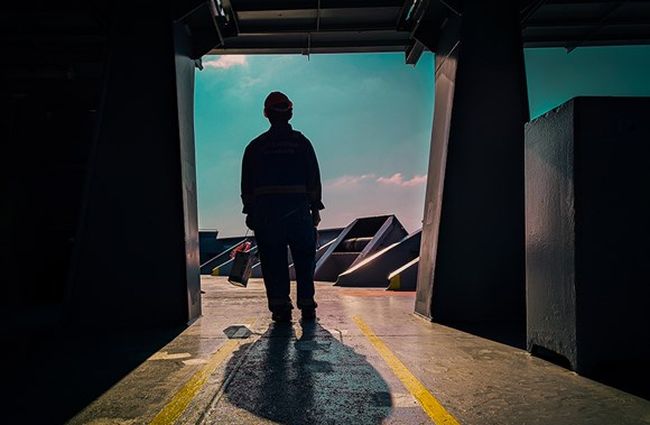
China Builds Huge Titanic Ship Replica
May 14, 2021
5 Of 7 Incidents Against Ships Reported Occurred In Singapore Strait (Asia, April 2021): ReCAAP ISC
May 14, 2021
Indian seafarers have been hit hard as the COVID-19 second wave upswing continues in the country. Almost every foreign port has put Indian seafarers on the not-to-be-hired list as the pandemic rages. So far the trade to and from India hasn’t been hurt but if the situation doesn’t improve in the next 2-3 months trade in India will be affected especially cargo trade.
As of now several maritime hubs like Singapore, Fujairah, UK, USE etc have banned ships coming from India and also crew changes from the country including those who have travelled to India recently. Many of them have denied entry to Indian seafarers
Abdulgani Serang, the General Secretary of the National Union of Seafarers of India (NUSI) has reiterated this when he said that Indian seafarers are at a disadvantageous position now.
The fear of the triple mutant COVID-19 strain has gripped nations and as such, they are now opting for Filipino and Indonesian seafarers over Indians.
Along with the Philippines and China, India has been the world’s largest suppliers of seafarers. At this point, the Indian shipping companies have been the only source of hope for the seafarers as Indian flagged vessels have no other option but to have Indian crew.
Meanwhile, this could be a start of a pitfall for Indian seafarers as they are likely to lose employment opportunities. Despite the pandemic, the shipping industry hasn’t shown any sign of slowing down as they have added 25000 jobs in 2020.
Arun Garodia, vice chairman of Engineering and Export Promotion Council of India (EEPC) has said that the impact of this will be felt in the coming days when cargoes that are about to reach destination won’t find the necessary crew. The export of every product from India is likely to be affected in the near future.
So far goods imports haven’t been affected due to the urgent clearance of goods facilitated by the government who is ensuring that the medical equipment and pharma products demands are met.
Most medical equipment has been carried by foreign ships which don’t need any deployment of Indian crew. Hence the medical and pharma cargo sector won’t be affected.
Meanwhile, industry experts have been pushing for speedy vaccination of Indian seafarers highlighting it’s the only solution now. Even Serang echoed the same sentiments when he had spoken in favour of adopting the IMO guideline of vaccinating seafarers on priority.
Strange had said that they had requested the government to categorize seafarers as frontline workers to facilitate faster vaccinations but the government didn’t agree to it.
Although vaccination has been opened for those of 18-45years of age, an age group most seafarers fall into but the shortage of supplies has been preventing them from getting vaccinated.
On the contrary, Indonesia and the Philippines have been reaping the benefits of early vaccinations of their seafarers. As of now, the government has shot back stating that they have tied up with port hospitals based in Kolkata, Mumbai and Kochi where any seafarer who is travelling in the next 60 days can get vaccinated.
The DG shipping, Amitabh Kumar has underlined this when he spoke about the vaccine issues. However, how much stock of vaccines are available in these centres remains unknown.
Reference: rediff.com
Source: Maritime Shipping News



